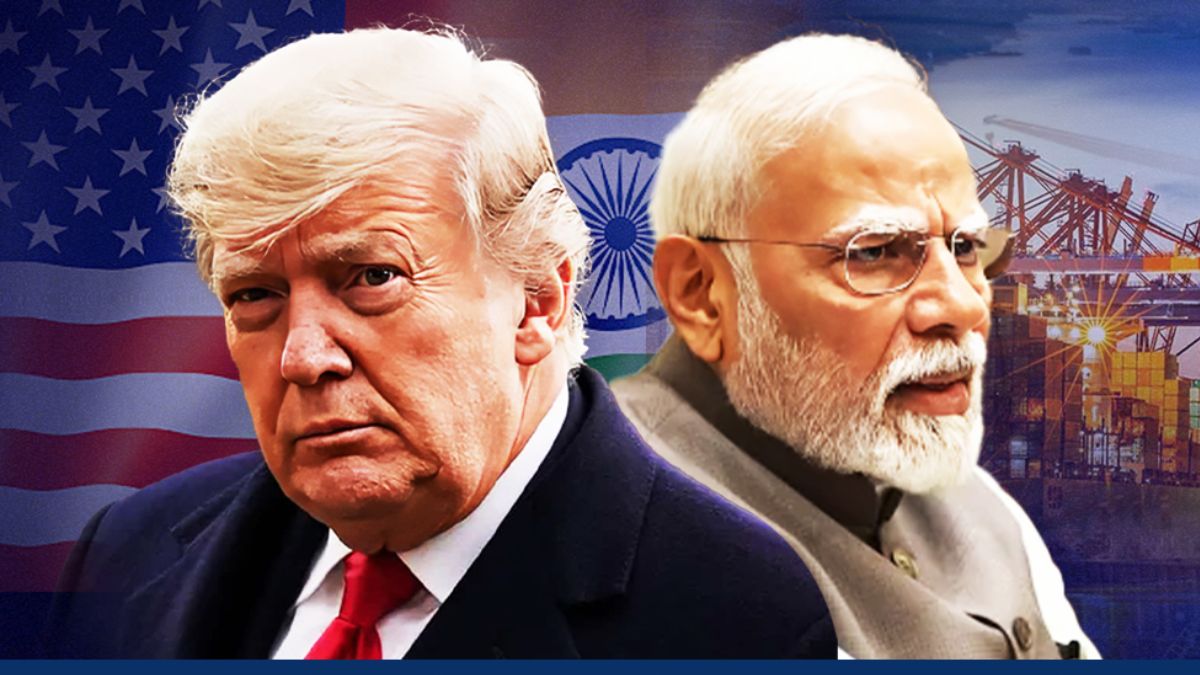‘In geopolitics, there are no permanent friends or enemies, only permanent interests.’ – Lord Palmerston
From Warmth to Whiplash
Few bilateral relationships have been cultivated with more care over the last two decades than that between the United States and India. The strategic logic was clear: as Asia’s other democratic giant, India could help anchor an Indo-Pacific balance of power to check China’s rise.
But President Donald Trump, in a matter of months, has managed to turn goodwill into suspicion. What began with a ‘MAGA plus MIGA equals mega partnership’ in February has degenerated into public insults, punitive tariffs, and a humiliating tilt towards Pakistan.
The consequences go well beyond bruised egos. They threaten to undo years of steady alignment between the two largest democracies, alignment that took decades to build and that the US can ill afford to squander.
The Tariff Hammer
Trump’s decision to slap a 25 per cent tariff on Indian goods, then double it to 50 per cent, was framed as punishment for New Delhi’s continued imports of Russian oil. Yet the hypocrisy is glaring: China, America’s main strategic rival, buys far more Russian oil without incurring such penalties.
The president’s taunt ‘They can take their dead economies down together’ was not only factually wrong (India’s economy is booming) but needlessly insulting. For India, it confirmed that Washington’s so-called ‘strategic partnership’ can be tossed aside the moment it becomes inconvenient.
Impact Shorts
More ShortsLisa Curtis, a veteran South Asia hand who served on Trump’s National Security Council, calls this approach ‘mystifying’ and ‘short-sighted’. The words are diplomatic; the implications are blunt. This is self-sabotage.
Kashmir: The Breaking Point
If the tariffs soured the mood, the Kashmir episode poisoned it. In May, after a terrorist attack sparked tensions between India and Pakistan, the US quietly urged restraint, standard practice in such crises. But Trump couldn’t resist claiming full credit, even boasting that he had threatened India to force a climbdown.
This crossed a red line. India has never accepted third-party mediation on Kashmir. Modi’s government took the extraordinary step of publishing its call minutes with Trump, stressing ‘at no point’ had there been mediation. Indian commentators called it ‘typical Trump overreach’.
The damage was compounded when Pakistan publicly praised Trump’s ‘peacemaking’ and even nominated him for the Nobel Prize he so covets. For New Delhi, the symbolism was clear: Washington had chosen public flattery from Islamabad over strategic discretion with India.
Playing Favourites
Soon after, Pakistan secured a tariff reduction from 29 per cent to 19 per cent. India’s rate stayed at 50 per cent. That sent a starker message than any speech: a supposed partner was punished harder than an adversary.
For many in India’s foreign policy establishment, this rekindled the suspicion that the US still sees South Asia primarily through a Pakistan-centric lens, a Cold War hangover they thought was long gone.
More Than Trade
The damage isn’t confined to tariffs and Kashmir. Indian students face increased harassment on American campuses under a tightening immigration regime. Deportations of undocumented Indians have spiked. Meanwhile, Trump’s attendance at the upcoming Quad summit in India is now in doubt.
Curtis is unequivocal: ‘Prime Minister Modi is just not going to trust President Trump anymore.’ Without personal trust, strategic logic will not hold the partnership together.
China and Russia Waiting in the Wings
It is naïve to think India will simply pivot to Beijing. The two countries remain strategic rivals, with unresolved border disputes and conflicting ambitions in the Indian Ocean. But Modi is preparing to visit China for the first time in seven years, a signal that New Delhi is willing to thaw ties when it suits its interests.
Russia, meanwhile, remains a trusted partner in defence and energy. President Putin’s planned visit to India underscores Moscow’s enduring relevance. If Washington keeps pushing India away, it risks accelerating a Eurasian convergence that US strategists have spent decades trying to prevent.
Strategy Demands Consistency
The US-India partnership was never about sentiment. It was built on shared interests, counterbalancing China, securing supply chains, and stabilising the Indo-Pacific. Such a partnership demands steadiness and respect for India’s strategic autonomy.
Trump’s approach has been neither steady nor respectful. His actions suggest a transactional mindset in which strategic relationships are subordinated to momentary political wins and rhetorical jabs. That is not how great-power partnerships survive.
A Self-Inflicted Wound
Palmerston’s maxim about permanent interests is more than a cynical quip; it is a warning. The US and India will always have differences, over trade, over Russia, over immigration. But these must be managed quietly, without public humiliation, if the broader strategic compact is to hold.
In torching trust for the sake of a few headlines and a Nobel nomination from Islamabad, Trump risks more than a temporary chill. He risks driving India to hedge harder with Beijing and Moscow, fracturing the delicate geometry of Asian geopolitics.
Great partnerships are built slowly and destroyed quickly. Washington still has a narrow window to repair the damage. But if it fails, it will discover, too late, that India, once alienated, will not be easily won back.
Ashutosh Kumar Thakur is a Bengaluru-based management professional, literary critic, and Curator. He can be reached at ashutoshbthakur@gmail.com. The views expressed in the above piece are personal and solely those of the author. They do not necessarily reflect Firstpost’s views.
)